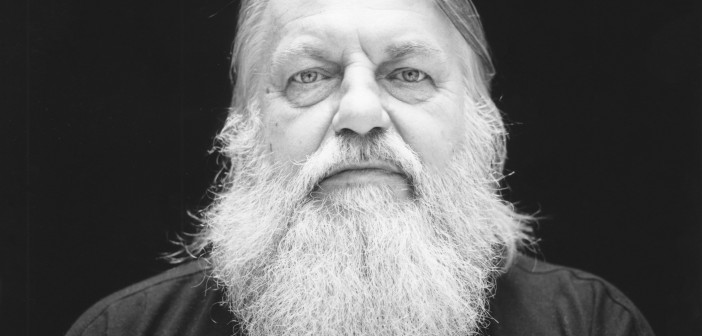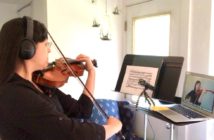A 50 years long career: progressive with Soft Machine, a friendship with Gong and Pink Floyd, an accident that put him on a wheelchair: the story of an exceptional artist that, for the first time, talks about himself in his biography :”Different Every Time”.
When in july 1973 Robert Wyatt, drunk, fell out from a 4th-floor window during a party, the Pink Floyd organized without hesitation, the 4th November of the same year, 2 charity nights at Rainbow Theater in London. A reward sign from a band that, in that moment, was at the top of celebrity for the release of The Dark Side of the Moon. Wyatt lost half of his body and was forced on a wheelchair. For a drummer who made history in the Canterbury School with the Soft Machine, after the Matching Mole, and played with Jimi Hendrix, loosing the use of the legs represented a mocking and tragic punishment. “I think I deserved all the bad fate that blew me down”, confesses the english artist during the publication of his first authorized biography, Different Every Time, by Marcus O’Diar, with Johnatan Coe introduction.
Though, Wyatt didn’t give up and in 8 months published Rock Bottom, produced by Nick Mason, a release full of gloomy sadness that brought him into the history of rock. A soloist activity at maximum levels (Old Rottenhat, Dondestan, Shleep), prestigious collaborations (Brian Eno, David Gilmour, Paul Weller), esteem statements (Björk e Thom Yorke adore him), leaved a mark in his bright career, skirted by an unreachable politic activism. In 1982 Clive Langer and Elvis Costello wrote for him a song, Shipbuilding, that talks about Falklands islands war.
What do you think about the book?
“Marcus worked very hard, I feel so grateful to him and to his editor, Mark Ellingham. In particular he tried to deeply understand my music. I checked some fundamental parts in the final draft, but – except this – I didn’t interfered at all in the writing process. It’s an O’ Diar project. Mine is just about the music I realized”.
Did you ever thought to write a book about your life?
“No”.
Neither if someone gave you the chance?
“Well, I would write some little stupid tales with drawings. Like Ivor Cutler did. Books for kids and old people”.
The biography describes some dramatic episodes of your life, like when you attempted suicide at the age of 16 and the fall that paralyzed you from the waist down at 27. What do you remember of those terrible moments?
“I think I deserved all the bad fate that I had. And, at the end, I think I also had a lot of chance. I don’t know yet how to live with dignity”.
Soft Machine and your solo career. More joy or regret?
Both. The regret is that from that group I came out without dignity. Playing with them has been incredible. But the joy I cherish the most is my “year zero”, in 1973: Alfie (Alfreda Benge,his wife) helped me in sustaining a totally new adult life. Capable to develop my internal ear. That work took me many years. I feel so lucky that, even in this new century, I started a beautiful musical travel with a lot of big friends that helped me during my life”.
Which kind of music do you listen today?
“Most of all the music of my adolescence. The music that inspired me at the beginning has still a place of relevance in my mind”.
Do you feel comfortable in the digital era?
“I leave smartphones to my nephews. Is their world now. But I’m grateful for the fact that our existences are more easy thanks to the non invasive use of machines. Me and Alfie are in our seventies and we need as much help as possible.
Are you working on a new release?
“No”
If you had a time machine, how would you use it?
“I’d go back in a place where nobody tells you that cigarettes are bad for you”.
Listen to “Turn Things Upside Down (with Happy End)”, 2014, by Robert Wyatt




